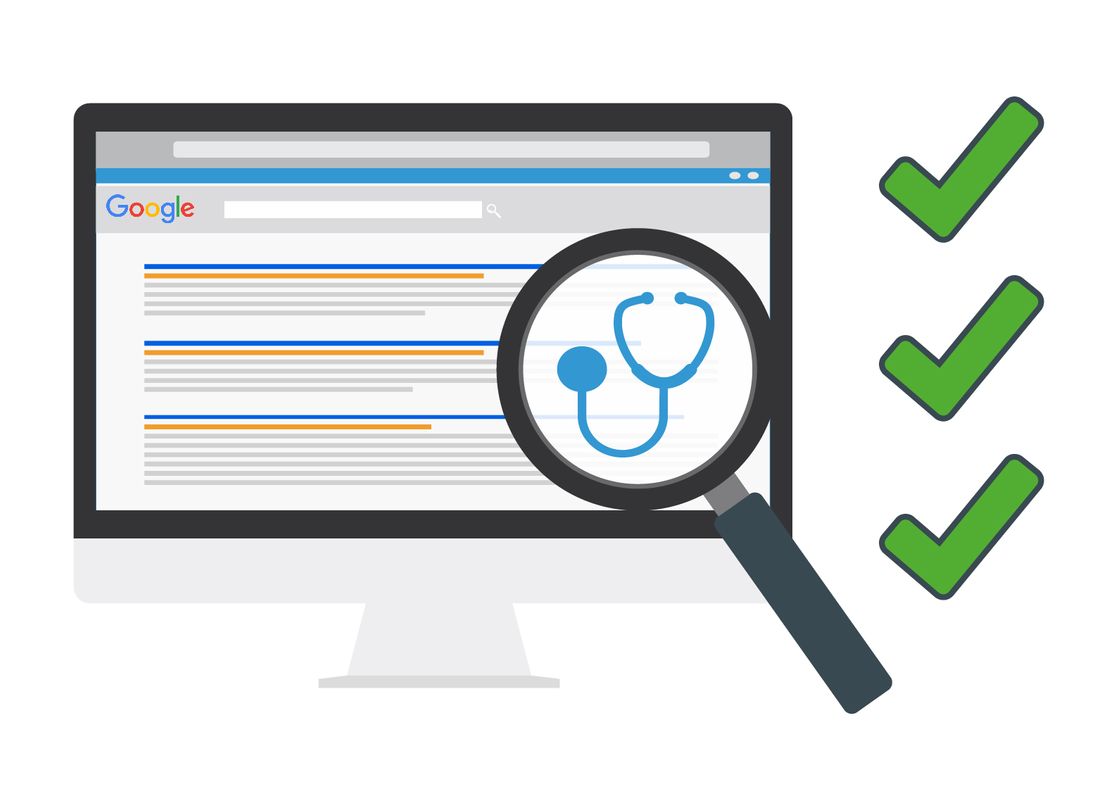Limited marketing budgets can force healthcare organizations to have to choose between traditional marketing options such as a website and newer, fast-growing mediums like social media. The fact that social media profiles are free – and that 67 percent of online adults use social networking sites on a regular basis – can make physicians and healthcare administrators lean toward that option.
What many fail to realize, however, is that social is just one aspect of an effective marketing campaign. After all, despite the fact that so many Americans are present on sites like Facebook and Twitter, research has shown that only 1 percent of online health seekers start their searches on those sites, compared to 77 percent who use search engines such as Google.
This means that if your healthcare practice doesn’t have a website that’s been optimized for search engines, the chances of your business being found are slim. After all, there’s not much you can do to promote your social media profiles in terms of SEO – and people don’t tend to click past the first page or two of search results.
In case none of that was convincing enough, we give you three more reasons why your healthcare website can’t be replaced by social media:
1. Branding.
There’s no questioning the fact that strategic social media marketing efforts can help build up a brand. Of course, you need to have an established brand to build up in the first place. This is where your website comes in – to serve as the showcase for your practice. It’s where you want to show off who you are and what you offer in the form of clear messages and strong imagery that patients will associate with brand. It’s also where you ultimately want to drive traffic. Since your social media profiles are essentially extensions of your brand, it is important that they follow the same look and feel established on your website. The goal, after all, is to get people back to your website – and you want the brand connection to be clear and strong.
2. Credibility.
For small businesses, particularly those in the healthcare sector, establishing credibility is important, as is developing trust. Neither thing can be achieved, however, with only a Facebook page or a Twitter profile. This is due to the fact that when it comes to researching doctors people want more information than what is traditionally available in a social media bio. Therefore, if you want to establish your healthcare practice as a credible business online, you need a professional medical website. Having a website tells current and prospective patients that you take pride in your business and that you can be a trusted source of information on matters of their health.3. Customer Data.
In order to improve your marketing efforts, you need to be able to measure what you’re doing right and wrong. To do so, you need data. Some social media platforms give you data, but it’s usually fairly limited. Facebook’s Insights tool, for example, provides data about the number of people that have seen or are interacting with a given post – but it’s all pretty basic. With a website, on the other hand, you can use tools like Google Analytics or Woopra to collect more comprehensive, real-time data about your customers’ behavior and gain knowledge such as:
- Where site visitors are coming from
- What visitors are doing on your site
- How long they’re staying
- How often they come back
You can also use your website to collect data of your own. You can accomplish this by requiring site visitors to provide their name, phone number and email address on a contact form, or by asking them to sign up for an email newsletter. This is valuable data that it would be impossible to come by using a social media platform only.
Does your healthcare practice have a social media presence but not a website? Tell us about your experience in the comments.


